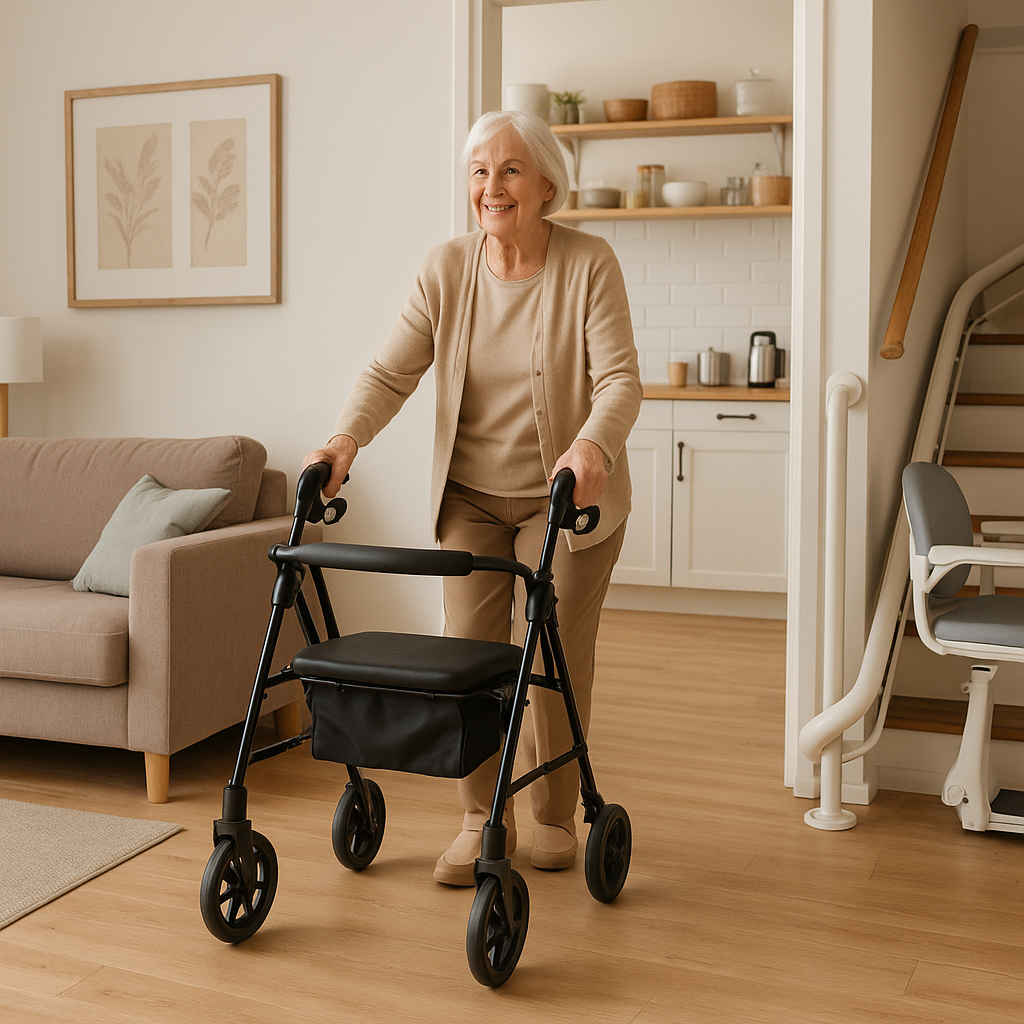Aged Care at Home
If you become ill or lose your independence, do you want to stay at home or do you want to move to an aged residential care facility? Who do you want to care for you at this stage of life?
What practical steps can you take now, to make the end of life easier? Now is always a good time to understand what is (and isn’t) available, so you can plan appropriately.
How can I stay in my own home?
You might like to consider some of the following questions…
- How close are you to hospital/medical care?
- Is there public transport available if you can no longer drive?
- Could you still maintain your property if you became ill?
- Who is available to help if you become ill?
- Are there meal delivery services in your area?
- Is there space in your home for a carer to sleep?
- Is there space for accessibility equipment in your home?
- Can you get around your home with a walker?
- What would it take to be able to move?
- Do you have Enduring Powers of Attorney setup?

Enduring powers of attorney
Setting up an enduring power of attorney will protect you if you become ill or lose mental capacity. This can be activated at anytime and can be useful even to give you help with life admin tasks if you are overwhelmed.
Applying for at home care assistance
The first step is to apply for a Level of Care Needs Assessment through your GP or Hospice social worker. This can take around 2 weeks.
At Home Care Funding
Publicly funded care is contracted to private companies in New Zealand. Your at home care can be a combination of public and privately funded care. A whānau or family member can apply to become your nominated paid caregiver if they are: 16 years or over. physically able to perform the necessary tasks.
Publicly Funded Care
Carers can come to your home up to 3 times a day to help with personal care such as showering, getting dressed, supervising medication etc. Family and friends also need to be available to offer support in between carer visits.
Privately Funded Care
You will pay around $50 per hour for a carer to come to your home and help with housework, meals and other personal help.
Explore aged care support in your local area…
Other Funding Assistance
Disability Allowance
Disability Allowance is a weekly payment for people who have regular, ongoing costs because of a disability. These costs could be visits to the doctor or hospital, medicines, extra clothing or travel but can also be used for a medical alarm. Check if you can get the disability allowance…
Total Mobility Allowance
The Total Mobility Scheme in New Zealand provides up to a 75% subsidy for people with disabilities to travel by taxi or other specialist transport providers. This is great for getting to medical appointments, especially if you need a vehicle with wheelchair accessibility. Find out what’s available in your region…
Carer Support Subsidy
Carer Support is available for ‘full-time Carers’. A full-time Carer is the person who provides more than 4 hours per day unpaid care, for example, the wife of a husband who has dementia. This subsidy helps you take some time out for yourself and provides reimbursement for some of the costs of care and support for the recipient of care while you have a break. Find your local NASC organisation to access…